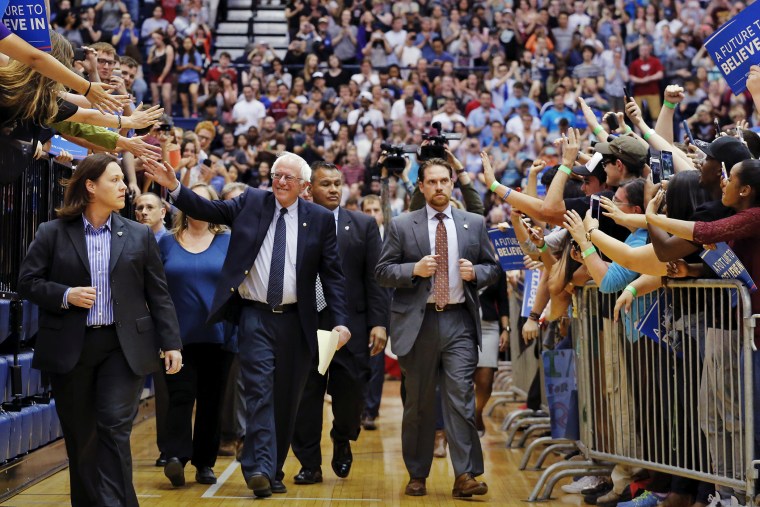In recent weeks, as his odds of winning the Democratic nomination have grown longer, Bernie Sanders has offered different explanations of why he's come up short thus far. The senator has pointed several times, for example, to the results from Southern primaries, which has proven problematic for a variety of reasons.
Yesterday, however, talking to NBC News' Chuck Todd, Sanders put forward a new take on the Democratic race. Here was the exchange on "Meet the Press":
TODD: I have quite some interesting numbers here. So 17 of the 25 states with the highest levels of income inequality have held primaries. Sixteen of those 17 states have been won by Hillary Clinton, not by you. Why? SANDERS: Well, because poor people don't vote. I mean, that's just a fact. That's a sad reality of American society. And that's what we have to transform. We have one -- as you know, one of the lowest voter turnouts of any major country on Earth. We have done a good job bringing young people in. I think we have done -- had some success with lower income people. But in America today -- the last election in 2014, 80% percent of poor people did not vote.
It's a provocative thesis, which is half-right. Note, for example, that Sanders' case that low-income Americans vote in much lower numbers is absolutely correct. There's ample evidence that points to a striking relationship between income and voting participation: the more money a voter makes, the more likely it is that he or she will participate in an election.
Demos published a fascinating report on this a couple of years ago, scrutinizing the 2010 cycle, and making the same point Sanders stressed yesterday: affluent citizens voted at rates "as high as 35 percentage points [higher] than low-income citizens."
There are all kinds of important political and societal consequences associated with this trend, not the least of which is policymakers, eager to keep their jobs, catering to the interests of those most likely to be engaged. If low-income Americans voted in greater numbers, national politics would likely look a lot different.
Where Sanders' explanation comes up short, however, is his belief that he'd be the principal beneficiary if these struggling voters showed up in greater numbers.
The Washington Post, for example, reported yesterday, "Sanders has lost Democratic voters with household incomes below $50,000 by 55 percent to 44 percent to Clinton across primaries where network exit polls have been conducted."
When Sanders takes stock of the Democratic race, he works from the assumption that low-income voters, if they'd showed up in greater numbers, would have helped propel him to victory. But the available exit-poll data -- which isn't comprehensive, but which paints a relatively detailed picture -- suggests these voters have generally preferred Hillary Clinton. If their turnout rates went up, the evidence says her vote totals would go up, too.
In other words, taken together, Sanders' prognosis touches on an important point, but it's incomplete. Low-income Americans don't vote in large enough numbers, a trend that carries real and important consequences, but even if they did, the outcome of the Democratic race would look largely the same as it does now.
